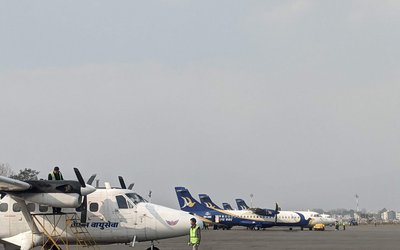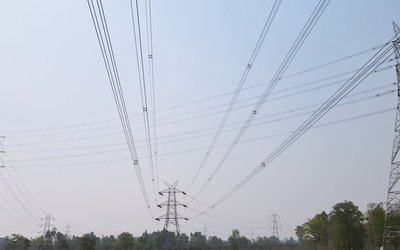Temple Tigers, a jungle lodge inside Chitwan National Park, has popularized Nepal as a destination for conservation tourism. Similarly, Tiger Tops Jungle Resorts has its long history of popularizing Nepal in the global market.
Hotels inside Chitwan National Park have not only contributed to conserve endangered species but also introduced Nepal as a different tourism zone but the government has decided not to renew the lease agreement of the hotels and resorts inside the park. They have been operating inside the park for nearly half a century.
Hotels Association of Nepal (HAN) president Shyam Lal Kakshapati has openly come in support of hoteliers inside the park and according to him, government should renew the leases without further delay.
Ram Prasad Lamsal, spokesperson at Ministry of Forests and Soil Conservation, said to media persons that the final deadline has expired and the agreement has not been renewed. As per an agreement with the government, the hoteliers will still get five more months to relocate their hotels.
According to HAN, the closure of the hotels and resorts would mean loss of investments worth NRs 2 billion and the jobs of 3,000 people and annual tax loss of some NRs 200 million for the government. “The government should consider all the benefits and should renew the contracts, and should not just act on false rumors of environmental degradation, which the hoteliers are not ready to accept,” said Kakshapati.
Kaskshapati is not the only one who is criticizing the government’s decision. FNCCI president Suraj Vaidya believes forceful removal of the resorts would spread a negative message among future potential investors.
“Hotels should not be closed as this will send a negative message to the potential foreign investors regarding Nepal and will adversely affect the plans for both Nepal Investment year and Visit Lumbini year,” said Vaidya.
According to the agreement reached between the government and the resort operators in 2010, the leases of the resorts inside the national parks expired by mid-July 2012. And the government is mainly citing the reasons of ecological imbalances which may cause environmental degradation and wildlife habitat disturbances as the main reasons for not renewal of leases.
Out of the seven hotels inside the national park, six were still in operation. Gainda Wildlife Camp had been shut down about two years ago due to labor issues. The other hotels include Tiger Tops, Narayani Safari, Chitwan Jungle Lodge, Machan Wildlife Resort, Island Jungle Resort and Temple Tiger.
Binod Chaudhary, president of the Confederation of Nepalese Industries (CNI), has also joined in to voice against the decision.
“In Africa and America among other countries, hoteliers are allowed to operate resorts inside national parks along with the responsibility for the conservation of wildlife and other natural resources,” said Binod Chaudhary to media persons. “In 50 years of history of these resorts, neither we have heard nor read that these hotels have degraded the natural habitat of wild animals as well as the environment, rather these hotels should be handed with the responsibility of conservation of the park,” he added.
Despite continuous pressure from private sectors, the government has still remained firm in its stance not to extend the contract.
CNI senior vice-president Narendra Basnet also has the similar opinions regarding the government’s harsh stance. He believes millions of rupees invested to build the resorts would be a waste and that also at a time when the country is struggling for investments if the government doesn’t reconsider its decision.
According to tourism entrepreneurs, Chitwan National Park is the second most popular safari destination in the world after Africa and about 30 percent of all the tourists who visit Nepal go on jungle safari in Chitwan.
“Such decisions of the government have very bad effect on the private sector and the question of security of investment has been raised again,” said Prasiddh Bahadur Pandey, former president of HAN.
Hoteliers who have been operating hotels inside the national parks have challenged openly to the government to prove that hotels are causing environmental imbalances and said if found guilty, they are ready to accept any government decisions.
At a time when the investment has been declining and when the overall economy is suffering, this decision by the government will hurt the tourism sector badly which was recovering after the NTY 2011, believe tourism experts.
- SWISS SUPPORT: Construction Of A Trekking Trail In Koshi
- Dec 19, 2024
- PM OLI'S VISIT TO CHINA: BRI Agreement
- Dec 16, 2024
- RASUWAGADHI AND SANJEN: Begin Generation
- Dec 03, 2024
- NEPAL, INDIA ELECTRICITY TRADE Nepal's Advantage
- Dec 02, 2024
- PM Oli'S VISIT TO CHINA: Nepal's Dilemma
- Dec 01, 2024
















